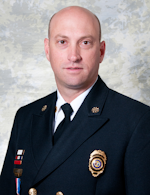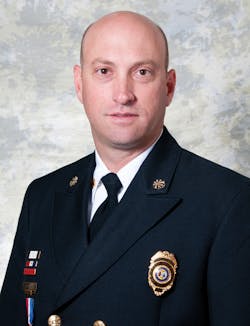As fire service leaders, we weren’t here for the 1913 Conference on Fire Waste and Insurance, and we missed the call from President Harry S. Truman in the 1947 President’s Report on Fire Prevention. While many of us started our career with the document America Burning as a guiding strategy for our efforts from training to staffing to fire prevention, there has been a gap since 1974.
You are leading now so the question is, what is your legacy?
Have you ever heard of Wingspread, Baggers, Junto? What about the Fireside Chats or the National Advisory Committee? All of these groups meet with a purpose and intent of continually improving our nation’s fire service as well as ourselves as fire service leaders. Are you engaged in your local and state fire service organizations? Are you a member of national fire service organizations and associations? If so, are you active? If not, what holds you back?
Although the source can’t be confirmed, President Teddy Roosevelt is attributed the quote, “Every man owes a portion of his time and money to the business or industry in which he is engaged. No man has the moral right to withhold his support from an organization that is striving to improve the conditions within his sphere.” There are many versions of this quote, but the message is clear: The more we are engaged as a group and the more support we give—through both our time and resources—to an organization working on the greater good, the better our profession will be.
There are many initiatives within the fire service. Which ones are you involved in, and how are you leading at the local, state, national or international level? Your legacy matters today and will live on tomorrow.
Chief Alan Brunacini once told me, “The more invisible I try to be, the more visible I become.” Bruno was very involved in major initiatives within our profession, and he gave a lot of his time and money to those initiatives. Sometimes it is important for us as leaders to pause and evaluate how we are spending our time. Are we making choices that allow us to be part of legacy-worthy decisions? Are we acting merely as a critic or do we offer critical feedback and support?
Will someone be speaking of things we did in the future with the same reverence we give to the likes of President Truman, Chief Edward Croker, Chief Engineer John S. Damrell, Chief Brunacini, Chief Ronny Coleman, Chief Warren Isman, Chief Dennis Compton, Chief Dan Jones and all the other greats who have gone before us? Are we giving what they gave? Are we as committed as these fire service leaders? Will we engage in making the system better or will we ride it out? The decisions we make today will decide the answer to those questions. It is my hope that we all contribute to our fire service and that our commitment level continues to rise.
I encourage you to read these legacy documents and look back upon these great leaders and their work. Who will step up to bring about new initiatives today and in the future? Where do the present fire service leaders gather to brainstorm improvements, initiatives and/or change? What other foundations or organizations are we working with to make these improvements? Should we be engaging groups outside our own profession?
It’s our time. Let’s seize the opportunity by making the choices that make the biggest differences. Let’s devote our time, resources and passion to causes that deserve it. Let’s unite and build on the legacies given us and the foundation provided by our fire service leaders who have gone before us.

Shane Ray
SHANE RAY has been a volunteer firefighter since 1984 and a career firefighter since 1994. He has also served as a mayor for six years and the Tennessee Fire Chief’s Legislative Chairman for 12 years. Ray’s love for politics started as fire chief of the Pleasant View Volunteer Fire Department in Tennessee, where he served 13 years. He then served under Governor Nikki Haley in South Carolina as superintendent and state fire marshal. He currently serves as the president of the National Fire Sprinkler Association and is a lifetime member of the Pleasant View Volunteer Fire Department. Throughout his career, he has been committed to public service with a “Do It Different” mentality and that all stakeholders are important.






